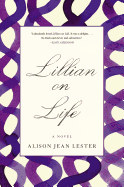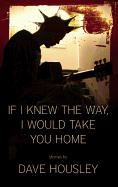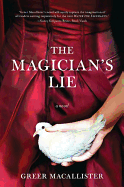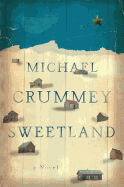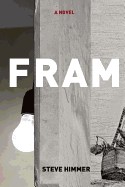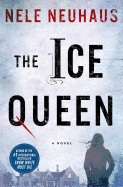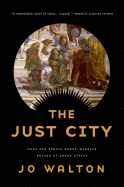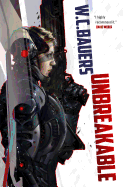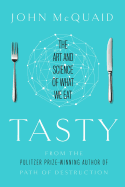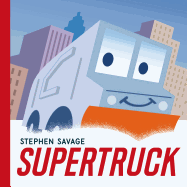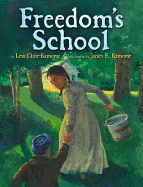 Decoding Your Dog: The Ultimate Experts Explain Common Dog Behaviors and Reveal How to Prevent or Change Unwanted Ones by the American College of Veterinary Behaviorists (Mariner, $15.95)
Decoding Your Dog: The Ultimate Experts Explain Common Dog Behaviors and Reveal How to Prevent or Change Unwanted Ones by the American College of Veterinary Behaviorists (Mariner, $15.95)
Decoding Your Dog is a wonderful resource for owners of any size, breed or age of dog. Drawing upon the stories of various dog owners and their pets, it covers subjects such as interpreting canine body language and using the correct tools for training. Even the most experienced dog lovers will appreciate this extensive resource on "man's best friend."
What Makes Olga Run?: The Mystery of the 90-Something Track Star and What She Can Teach Us About Living Longer, Happier Lives by Bruce Grierson (St. Martin's Griffin, $15.99)
Bruce Grierson woke up one morning feeling much older than his chronological age of 47. Enter Olga: a 90-something competitive runner who seems indefatigable in both body and spirit. In What Makes Olga Run?, Grierson decides to unravel the mystery of Olga's health, vitality and longevity. Spending time with Olga, he also began to feel better, younger and healthier.
The Undercover Economist Strikes Back: How to Run--or Ruin--an Economy by Tim Harford (Riverhead, $16)
British financial journalist Tim Harford delivers a lively brief survey of the subject of macroeconomics, making its arcane aspects comprehensible without pretension. Harford casts a wide net over the topics--fiscal and monetary policy, unemployment, GDP, growth--that fuel modern economists' most heated debates without oversimplifying or condescending to his readers.
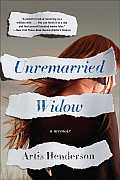 Unremarried Widow by Artis Henderson (Simon & Schuster, $16)
Unremarried Widow by Artis Henderson (Simon & Schuster, $16)
By the middle of Unremarried Widow, the wish is fervent: please let this be a novel; please let Artis Henderson's husband return from Iraq unharmed. But we know that is not her story. Artis was working in Florida when she met Miles, an army pilot. The photo snapped on their wedding day was the one she sent to accompany his obituary. They had been married four months.
Flappers: Six Women of a Dangerous Generation by Judith Mackrell (Crichton/FSG, $16)
The flapper took on a mythological aspect almost from the moment she first appeared in the 1920s. With her short hair, short skirts and short attention span, she seemed like a new and unsettling breed of woman, another unanticipated aftershock of the First World War. Judith Mackrell explores the phenomenon through the lives of six prominent women who embodied "flapper-ness" for their contemporaries.
The Longest Date: Life as a Wife by Cindy Chupack (Penguin, $15)
Cindy Chupack understands that being wildly, deeply in love with your husband and having an insurmountable desire to punch him in the face are not mutually exclusive. She flips over the strong, shining rock that is marriage and shows us the wormy underside.
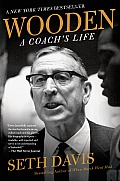 Wooden: A Coach's Life by Seth Davis (St. Martin's Griffin, $18.99)
Wooden: A Coach's Life by Seth Davis (St. Martin's Griffin, $18.99)
UCLA basketball coach John Wooden, the "Wizard of Westwood," was a gentle giant of wisdom whose reputation as selfless philosopher and teacher overshadowed the fiery competitor and mean taskmaster on court. Behind his façade of invincibility lay a remote individual whose dogged Midwestern work ethic and strict adherence to rules left him unable to be the father figure his young charges sought.
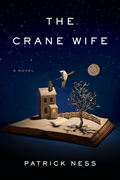 The Crane Wife by Patrick Ness (Penguin, $16)
The Crane Wife by Patrick Ness (Penguin, $16)
In this retelling of the Japanese crane wife fable, by a master of heightened moments, freighted silences and wit, we first meet George in the dead of night. Awakened by an uncanny, desperate cry, he finds a wounded giant white crane in his garden, beginning his odyssey--and the crane's, which will reappear in human guise as an artist named Kumiko.
The Dead in Their Vaulted Arches: A Flavia de Luce Novel by Alan Bradley (Bantam, $15)
Flavia de Luce, girl sleuth, learns deep family secrets at the funeral of the mother she never knew. It's a somber group gathered at the Buckshaw Halt station platform to meet the coffin of the long-missing Harriet de Luce, but Flavia is skeptical of the extended de Luce family members who arrive for the funeral. Despite her sorrow, Flavia's keen inquisitiveness leads her to action.
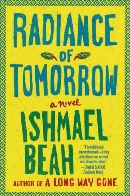 Radiance of Tomorrow by Ishmael Beah (Crichton/FSG, $14)
Radiance of Tomorrow by Ishmael Beah (Crichton/FSG, $14)
A novel of survival set in Sierra Leone, Radiance of Tomorrow examines not only what happens to communities devastated by war, but also their traditions and the outlook for their future. What begins as a story of survivors returning to what used to be home and attempting to reconstruct the rhythms of normal life takes several surprising turns as Beah carefully unfolds his elegant and layered narrative.
Lost Lake by Sarah Addison Allen (St. Martin's Griffin, $15.99)
Lost Lake is a treat for fans of Addison's previous novels or those who simply love a good Southern story. It is the bittersweet but hopeful tale of a Georgia lake resort and the characters whose fortunes are bound up with it when, adrift after the loss of her husband, Kate falls under the spell of Lost Lake's charm.
Mayhem by Sarah Pinborough (Jo Fletcher/Quercus, $14.99)
London, 1888: The city is transfixed by the disturbingly flamboyant crimes of Jack the Ripper. Fear increases as the bodies pile up. But the situation may be worse than imagined: the police in Sarah Pinborough's novel Mayhem are beginning to suspect that there are two serial killers at work.
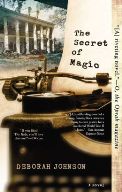 The Secret of Magic by Deborah Johnson (Berkley, $16)
The Secret of Magic by Deborah Johnson (Berkley, $16)
Deborah Johnson casts a spell over readers with her second novel, the intricately layered mystery The Secret of Magic. Regina Robichard, an attorney working with the NAACP in 1946, has plenty of experience with discrimination, but when her supervisor, Thurgood Marshall, sends her to Mississippi to investigate the death of a black soldier during his bus ride home, she finds a depth of prejudice she never dreamed possible.
Famous Writers I Have Known by James Magnuson (Norton, $15.95)
"Sometimes writing a sentence can be harder than serving one," says Frankie Abandonato, the narrator of James Magnuson's hilarious Famous Writers I Have Known. Frankie's speaking to us from a writing class in prison, but he soon rewinds his story five years to New York City, where he and his buddy pull a scam on someone who turns out to be a mob relative.
The Scent of Pine by Lara Vapnyar (Simon & Schuster, $15)
Lena, an adjunct professor of film at a community college, and Ben, who teaches the history of the graphic novel at Rutgers, meet at an academic conference. Lena is a Russian immigrant, mother to two young boys, and disappointed in her marriage to a mathematician husband, while Ben, who's divorced, is in a relationship destined to end soon. Their mutual disillusionment leads to a weekend affair where they share their stories.
Apple Tree Yard by Louise Doughty (Picador, $16)
A respected English geneticist and married mother of two, Yvonne Carmichael shares legal peril with the first man who tempted her to cheat on her husband. He's an enigmatic government employee, also married, whose name and exact job title were happily mysterious to Yvonne until a traumatic trajectory transformed the nature of their dalliance from naughty to incriminating.
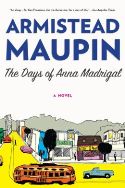 The Days of Anna Madrigal by Armistead Maupin (Harper Perennial, $15.99)
The Days of Anna Madrigal by Armistead Maupin (Harper Perennial, $15.99)
The Days of Anna Madrigal, the ninth book in Armistead Maupin's Tales of the City series, may truly be its finale, yet it's as good a place to start as any of its predecessors. Having surprised nearly everyone, including herself, by making it to the age of 92, Anna has begun to feel an urgent need to deal with loose ends.
North of Boston by Elisabeth Elo (Penguin, $16)
Pirio Kasparov is crewing her friend Ned's fishing boat when a hulking gray ship emerges from the fog outside Boston harbor and smashes into them, hurling her overboard into the cold Atlantic. Ned and his boat disappear; she miraculously survives. The more she learns of Ned's former employer, the more she becomes suspicious that the "hit and run" collision at sea was a murder to cover up illegal whale killing.
Now in Paperback: January
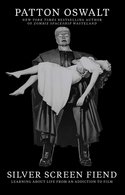 The realization hit me while reading Patton Oswalt's wonderful Silver Screen Fiend: Learning About Life from an Addiction to Film, and was confirmed by Tara Ison's Reeling Through Life: How I Learned to Live, Love and Die at the Movies. "Movies have gotten under my skin, formed my perceptions, influenced the choices I've made," Ison writes. "I've learned how to live at the movies, from the movies; I am who I am because of movies, and, to some degree, all the other movie freaks out there are, too." As am I.
The realization hit me while reading Patton Oswalt's wonderful Silver Screen Fiend: Learning About Life from an Addiction to Film, and was confirmed by Tara Ison's Reeling Through Life: How I Learned to Live, Love and Die at the Movies. "Movies have gotten under my skin, formed my perceptions, influenced the choices I've made," Ison writes. "I've learned how to live at the movies, from the movies; I am who I am because of movies, and, to some degree, all the other movie freaks out there are, too." As am I. 


 Paul Muldoon
Paul Muldoon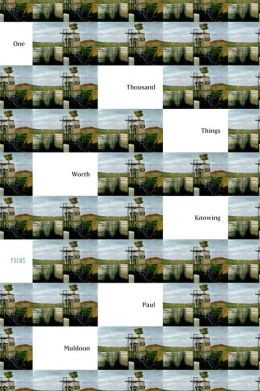 The opening poem, "Cuthbert and the Otters," is a powerful dirge-like lyric about Seamus Heaney; it's dedicated to him. In it you refer to your grief and sadness over his death, all couched in the story of the Celtic monk Cuthbert. How did that synthesis come about?
The opening poem, "Cuthbert and the Otters," is a powerful dirge-like lyric about Seamus Heaney; it's dedicated to him. In it you refer to your grief and sadness over his death, all couched in the story of the Celtic monk Cuthbert. How did that synthesis come about?






